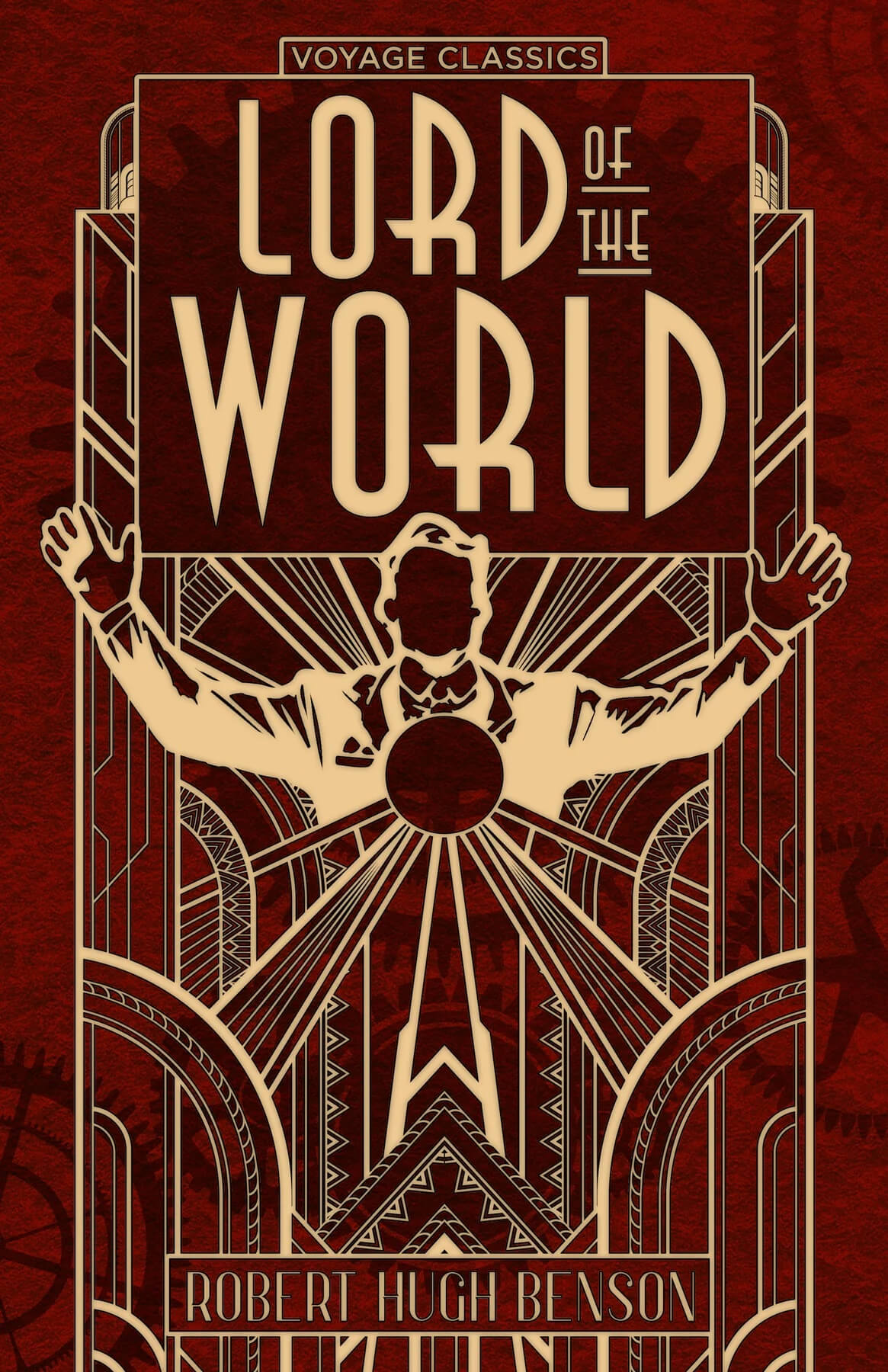Genre
Audience
Author’s Worldview
Catholic
Year Published
1907 (Voyage Comics edition: 2023)
Themes
Reviewed by
Courtney Guest Kim
You may be curious to read this novel because Pope Francis has publicly endorsed it at least four times, and before him, Pope Benedict XVI referred to it. Considering that Pope Francis tends to be portrayed as aligning with trends in Western culture, you may be intrigued to discover that his favorite novel is a grim dystopia that depicts a Church entrenched in a last stand against a hegemonic combination of Western hedonism and socialism. You can probably recoup the cost of the book by betting your friends that they will never guess when it was written. With the new cover art and illustrations by Voyage Comics, this past-future alternative universe cuts too close to home for most people to get the correct answer: 1907.
Published a generation before Huxley’s Brave New World (1932), and nearly two generations before Orwell’s 1984 (1949), Lord Of The World is just as creepily prescient. Its protagonist has a greater depth of interiority as compared to those novels. The interactions between the characters are more realistic. And its plot is more suspenseful. How is it, then, that no one has heard of it, except for a couple of popes?
The glaring answer is that the protagonist of this novel is a priest. Its author, Robert Hugh Benson, was an Anglican minister whose father had been Archbishop of Canterbury. After his father’s death, Benson became Catholic, was ordained a priest, and wrote several novels. Whereas Huxley and Orwell describe a future in which Christianity has been edited out, Benson describes a confrontation between an embattled Church and a hostile Western secularism that has achieved world domination.
Two fascinating characters are a perfectly nice couple who will remind you of lots of people you know. They are pleasant, successful, attractive, and there’s really nothing wrong with them except that they identify so completely with the trending ideology that they simply cannot call into question anything that is considered normal, even when the consequences are—well, I don’t want to spoil the momentous plot twists.
Without spoilers, I can describe one aspect of Benson’s vision that is very much a reality today. In his dystopia, euthanasia has become the normal way to end a human life as soon as age or illness has put someone beyond fixing. Benson perceived that, if euthanasia is the appropriate solution for intractable physical illness, it should also logically be the solution for psychological distress: exactly the line of thought that Canada has been following. His description of a high-class suicide clinic to which respectable people can go to end their lives in comfort reads like a blueprint for current day Swiss suicide tourism. Benson takes the next logical step and describes the scene of an accident where the people who come rushing to help are not paramedics attempting to save lives but euthanizers whose job is to dispatch the wounded—painlessly, of course. Benson’s insight is that when a hedonistic culture makes pain the worst evil and socialist politics subsumes the individual to the collective, death really is the logical solution to any intractable problem.
Lord Of The World is a gripping read, fascinating at many levels. It is certainly not a feel-good story, but it will appeal to anyone who is interested in the relations between the Church and the world over the past century and into today. It is especially insightful in its examination of the interplay between rejection of faith at the individual level and official suppression of the Church by authoritative institutions. As Philip Kosloski’s Preface makes clear, discussing Pope Francis’s numerous public references to this novel, Lord Of The World illustrates the all too relevant phenomenon of ideological colonization.




